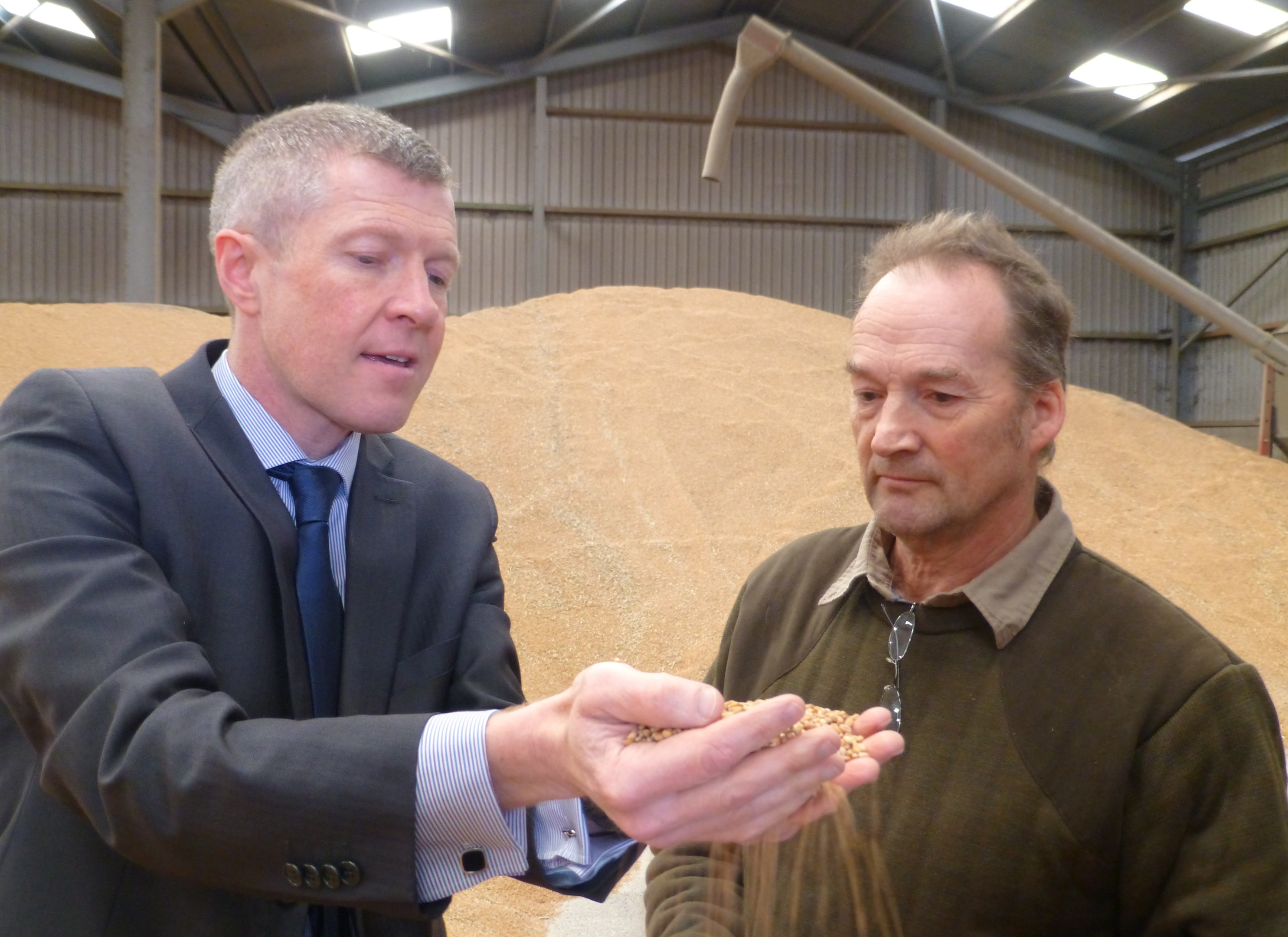Politicians of all parties have been urged to get behind a campaign to force distillers to use exclusively Scottish grain in the production of whisky.
Scottish Liberal Democrat leader, Willie Rennie has thrown his weight behind the argument that only whisky produced with home grown grain should have the right to the Scotch label.
And on a visit to a Fife cereals farm, he threw down the gauntlet to the whisky industry to support Scottish agriculture.
“Farmers are selling their cereals for animal feed while distillers are importing grain. They say they’re buying 80% from Scottish sources, but that still leaves 20% and the farmer on this farm and many others have sheds full of grain,” he said.
“All political parties need to get behind Scottish farmers and urge a greater effort to buy Scottish barley for whisky, except in exceptional circumstances. It should be Scottish first and foremost. Farmers get paid a premium for quality beef, lamb and cheese. That should apply to the whisky industry too.”
Mr Rennie was speaking on 450 acre Muirhead of Pitcullo farm near Cupar which is farmed by Roy Dawson. The land grows winter wheat, winter barley and a small acreage of spring barley. Mr Dawson said that in the past he grew 300 acres of spring barley which had a good market at local maltsters but the grain he grew now resulted in him losing money.
He said: “Now the premiums have disappeared and the maltsters buy more cheaply overseas. I go through extensive farm audits to have all the cereals I grow on the farm assured and certified.
“Yet the distillers are bringing in grain from mainland Europe which is produced with none of the controls we have to adhere to. They’ve hijacked the Scotch name. It’s so wrong.”
Mr Dawson said the issue was brought up at every farming meeting he attended.
He added: “Every farmer feels the same way but we’re up against the whisky industry which is a king pin. They’re so big no one can touch them.”
A spokeswoman for the Scotch Whisky Association (SWA) said the industry tried to source Scottish grain where it could, but that wasn’t always possible because of weather conditions. And she rejected the suggestion that if Scotch whisky wasn’t made with Scottish grain it was misrepresentation of the product.
“This subject comes up every so often,” she said. “Whisky is an iconic product and we are keen to protect the Scottish image. It is our priority to ensure we have a quality Scottish product.”










